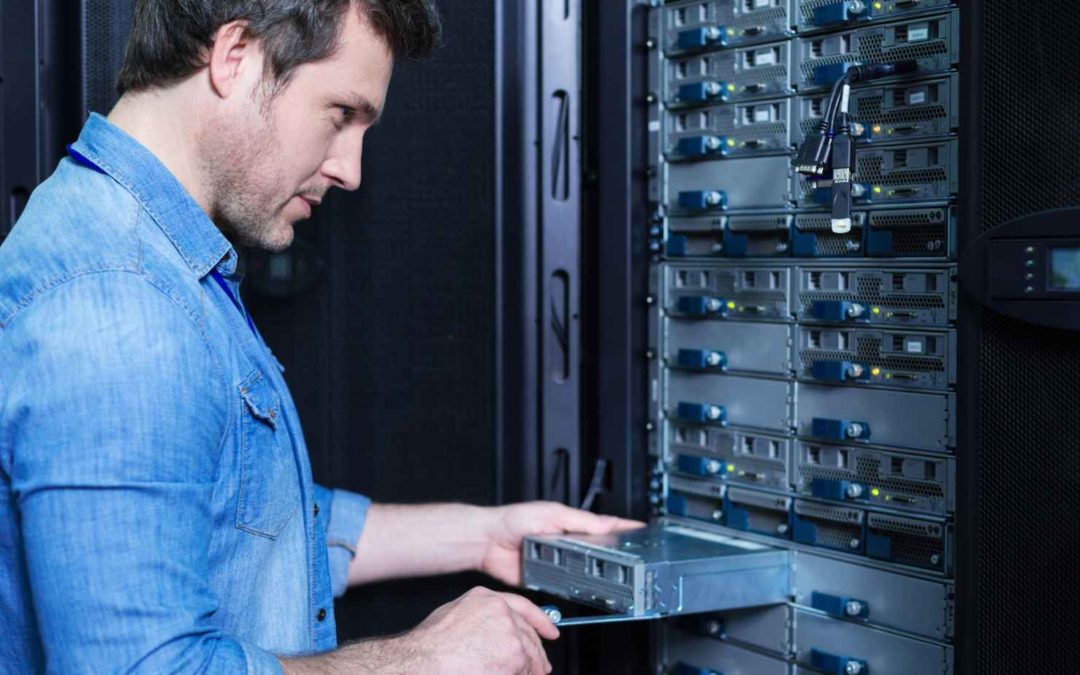Do you ever wonder what keeps your precious data safe and accessible?
It’s no coincidence that maintenance and cleaning services play a vital role in the protection and efficiency of data centers. In this informative guide, we will expose the importance of investing in regular maintenance and cleaning for your data center.
By following best practices and ensuring cleanliness, you can reap the benefits of enhanced performance, reduced downtime, and increased data security.
We will delve into key components of data center cleaning and highlight the significance of maintaining clean air in these facilities.
So, if you value the freedom of uninterrupted access to your data, read on to discover why maintenance and cleaning services are crucial for your data center’s success.
Table of Contents
Key Takeaways
- Optimal performance and efficiency
- Reduced risk of downtime
- Enhanced data security
- Extended equipment lifespan
Benefits of Data Center Maintenance
You will experience numerous benefits when you maintain your data center regularly.
Regular maintenance ensures that your data center is operating at its optimal performance, minimizing the risk of downtime and maximizing efficiency.
By regularly inspecting and cleaning your equipment, you can prevent potential issues before they become major problems. This proactive approach not only saves you time and money but also gives you peace of mind knowing that your data is secure and accessible at all times.
Additionally, regular maintenance helps extend the lifespan of your equipment, reducing the need for costly replacements. It also allows you to stay ahead of technological advancements and industry standards, ensuring that your data center remains up to date.
Key Components of Data Center Cleaning
To ensure the optimal performance and longevity of your data center, it’s essential to understand the key components involved in its cleaning process.
The first component is the physical cleaning of the data center facility. This includes the cleaning of floors, walls, ceilings, and other surfaces to remove dust, dirt, and debris.
The second component is the cleaning of equipment, such as servers, switches, and cables. This involves removing dust and contaminants from the equipment to prevent overheating and malfunctions.
The third component is air filtration and ventilation. Proper air filtration systems and regular maintenance of HVAC units are crucial to maintain a clean and dust-free environment within the data center.
Lastly, regular inspections and preventive maintenance should be performed to identify any potential issues and address them before they become major problems.
Preventing Downtime With Regular Maintenance
Regular maintenance is crucial for ensuring that your data center operates smoothly and efficiently, minimizing the risk of unexpected disruptions. By regularly performing maintenance, you can effectively prevent downtime in your data center.
Here are two key ways in which regular maintenance can help prevent downtime:
- Equipment Inspection and Testing:
Regularly inspecting and testing your data center equipment, such as servers, cooling systems, and power distribution units, can help identify any potential issues before they escalate into major problems. By detecting and addressing issues proactively, you can minimize the chances of equipment failure and subsequent downtime. - Software Updates and Patching:
Keeping your data center’s software up to date is essential for maintaining optimal performance and security. Regularly applying software updates and patches ensures that any vulnerabilities or bugs are addressed promptly, reducing the risk of system crashes or security breaches that could lead to downtime.
Importance of Clean Air in Data Centers
Maintaining clean air in your data center is crucial for optimal performance and longevity of your equipment. The air quality within your data center directly affects the efficiency and reliability of your operations.
Dust, dirt, and other contaminants can accumulate in your data center and clog up your equipment, leading to overheating and potential system failures. By ensuring clean air, you can prevent these issues and minimize downtime.
Clean air also plays a significant role in protecting sensitive components and preventing electronic failures. Particulate matter in the air can settle on circuit boards and other critical components, causing short circuits and malfunctions. By implementing proper air filtration systems and regular maintenance, you can create a controlled environment that reduces the risk of equipment damage and extends its lifespan.
Furthermore, clean air improves energy efficiency. When equipment isn’t obstructed by dust and debris, it can operate more efficiently, leading to reduced energy consumption and cost savings. Additionally, clean air promotes better air circulation, helping to dissipate heat generated by the equipment and prevent hotspots.
Ensuring Data Security Through Cleaning Services
Using regular cleaning services is crucial for ensuring the data security of your center. In today’s digital age, data breaches and cyber attacks are on the rise, making it more important than ever to prioritize the security of your data center.
Here are some ways in which cleaning services can help ensure data security:
- Regular cleaning and sanitization of equipment and surfaces:
- Dust and debris can accumulate on servers and other equipment, potentially causing overheating and malfunctions that could compromise data security.
- Cleaning services can help remove dust and other contaminants, reducing the risk of equipment failure and improving overall data center performance.
- Proper disposal of sensitive materials:
- Cleaning services can ensure that any sensitive documents or materials are properly disposed of, reducing the risk of data breaches or unauthorized access to confidential information.
Frequently Asked Questions
How Often Should Data Centers Undergo Maintenance and Cleaning Services?
You should regularly schedule maintenance and cleaning services for your data center to ensure optimal performance and prevent potential issues. The frequency will depend on factors such as equipment usage and environmental conditions.
What Are the Potential Risks and Consequences of Neglecting Data Center Maintenance and Cleaning?
Neglecting data center maintenance and cleaning can lead to various risks and consequences. These include equipment failure, decreased performance, increased energy consumption, higher operating costs, compromised data security, and potential damage to valuable assets.
Are There Any Specific Regulations or Industry Standards for Data Center Maintenance and Cleaning?
Are there any specific regulations or industry standards for data center maintenance and cleaning? Yes, there are. These regulations and standards ensure the smooth operation and optimal performance of data centers, minimizing risks and ensuring the safety and security of your data.
Can Data Center Cleaning Services Be Customized to Meet Specific Needs or Requirements?
Yes, data center cleaning services can be customized to meet your specific needs and requirements. They understand the importance of tailoring their services to ensure your data center remains clean and efficient.
What Are Some Common Challenges Faced During Data Center Maintenance and Cleaning, and How Are They Addressed?
During data center maintenance and cleaning, common challenges include equipment downtime, dust accumulation, and electrical hazards. These are addressed through regular inspections, scheduled cleanings, and implementing safety protocols to ensure efficient operations and minimize risks.
Conclusion
In conclusion, regular maintenance and cleaning services are crucial for the efficient and secure operation of data centers. By ensuring the proper functioning of key components and preventing downtime, businesses can protect their valuable data and minimize disruptions.
Additionally, maintaining clean air quality in data centers is essential for the optimal performance of sensitive equipment. By prioritizing maintenance and cleaning, businesses can maximize the reliability and longevity of their data center infrastructure.

